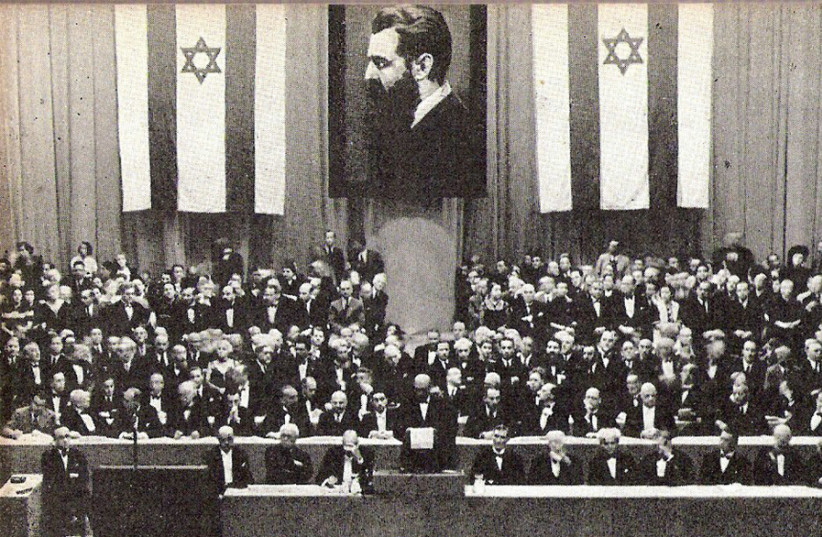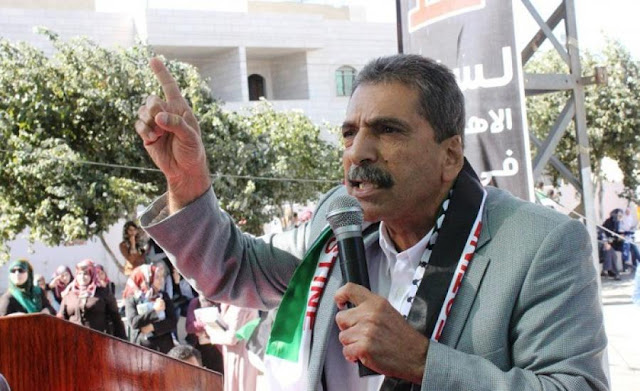I wrote my
fisking of Peter Beinart's NYT op-ed quickly, but the true depth of Beinart's dishonesty can be seen from a deeper dive into one of the topics he mentioned and I touched upon.
He wrote, "Although supportive of Israel’s existence, America’s leading Jewish groups did not make it the center of their work in the mid-20th century.
And when they did focus on Israel, they often tried to bring its behavior in line with their broader liberal democratic goals. The A.J.C. repeatedly criticized Israel for discriminating against its Palestinian Arab citizens. In 1960 the head of the group’s Israel Committee
explained that it hoped to eliminate “antidemocratic practices and attitudes” in the Jewish state so the organization could more credibly “invoke principles of human rights and practices in our country and abroad.”
Beinart links to a fairly obscure 1998 academic paper, "Transformation Through Crisis: The American Jewish Committee and the Six-Day War," by Lawrence Grossman, published in the journal American Jewish History. This is already a red flag - if American Jewish organizations in the 1960s were so uniformly critical of Israeli democracy, wouldn't there be a New York Times article about it that Beinart could link to?
The entire point of the academic article Beinart links to is to show that the AJC was out of the mainstream of American Jewish opinion on Israel and Zionism before 1967. It refutes Beinart's point - but Beinart quotes a small portion and pretends that the AJC's ambivalence on Israel represented mainstream American Jewish thought.
On the contrary - that attitude made the AJC nearly irrelevant in the 1960s. The paper makes the AJC's anomalous status clear:
The Jewish community had shifted massively toward the Zionist pole, and the AJC risked being marginalized if it did not adjust.
By the early 1960s, writes Naomi Cohen, AJC "had virtually stopped growing." In 1962 Executive Vice President John Slawson told a newly organized AJC Committee on National Growth that one reason Jews were reluctant to join was that "there is still a feeling that we are anti-Israel."

The article also notes that the AJC was literally the only Jewish organization in America to criticize Israel for a 1966 retaliatory raid in Jordan after a series of Arab attacks and not to condemn a UN anti-Israel resolution on the issue. The Conference of Presidents of Major American Organizations, the major American Jewish umbrella group, condemned the UN resolution. The National Community Relations Council, the other large American Jewish umbrella group, was prevented from joining the Conference of Presidents resolution because its rules required a unanimous vote - and the objection of the AJC, which had only recently joined the NCRC, vetoed it.
Beinart must have read the entire piece to find the out-of-context quote he published, which means he knows very well that he was misrepresenting the opinions of major American organizations.
To be sure, American Jews in the 1960s had other issues to worry about besides Israel. There was still explicit antisemitism in America, and the plight of Soviet Jewry started gaining recognition. But I did a quick survey of the front page of the Wisconsin Jewish Chronicle, as a representative of Jewish mainstream concerns, on its first issue in each year from 1960 to 1967. Israeli topics were featured as the top story in every issue (judged as the right-most story on the front page):
January 1, 1960: Golda Meir criticizes a World Bank loan to Nasser's Egypt
January 6, 1961: David Ben Gurion says a speech of his was distorted and he lauds US Jewry
January 5, 1962: Soviet-Egyptian pact on arms a concern for Israel
January 4, 1963: "Middle East arms race unfolding to Israel's disadvantage": Javits
January 3, 1964: Israel charges Syria with "barbarism" in treatment of Israeli prisoners
January 1, 1965: Cabinet decides against reopening Lavon affair
January 7, 1966: State Department confirms supplying Jordan with up to 100 Patton tanks
January 6, 1967: Israel complains to Security Council over Arab raids
Beinart is making things up, knowing full well that most people - and certainly the New York Times editorial board - will not fact-check him. This is a pattern with Beinart, who is not only lying, but attempting to rewrite history itself.
|
 Buy the EoZ book, PROTOCOLS: Exposing Modern Antisemitism today at Amazon! Buy the EoZ book, PROTOCOLS: Exposing Modern Antisemitism today at Amazon!
Or order from your favorite bookseller, using ISBN 9798985708424.
Read all about it here!
|

|


 Elder of Ziyon
Elder of Ziyon




































